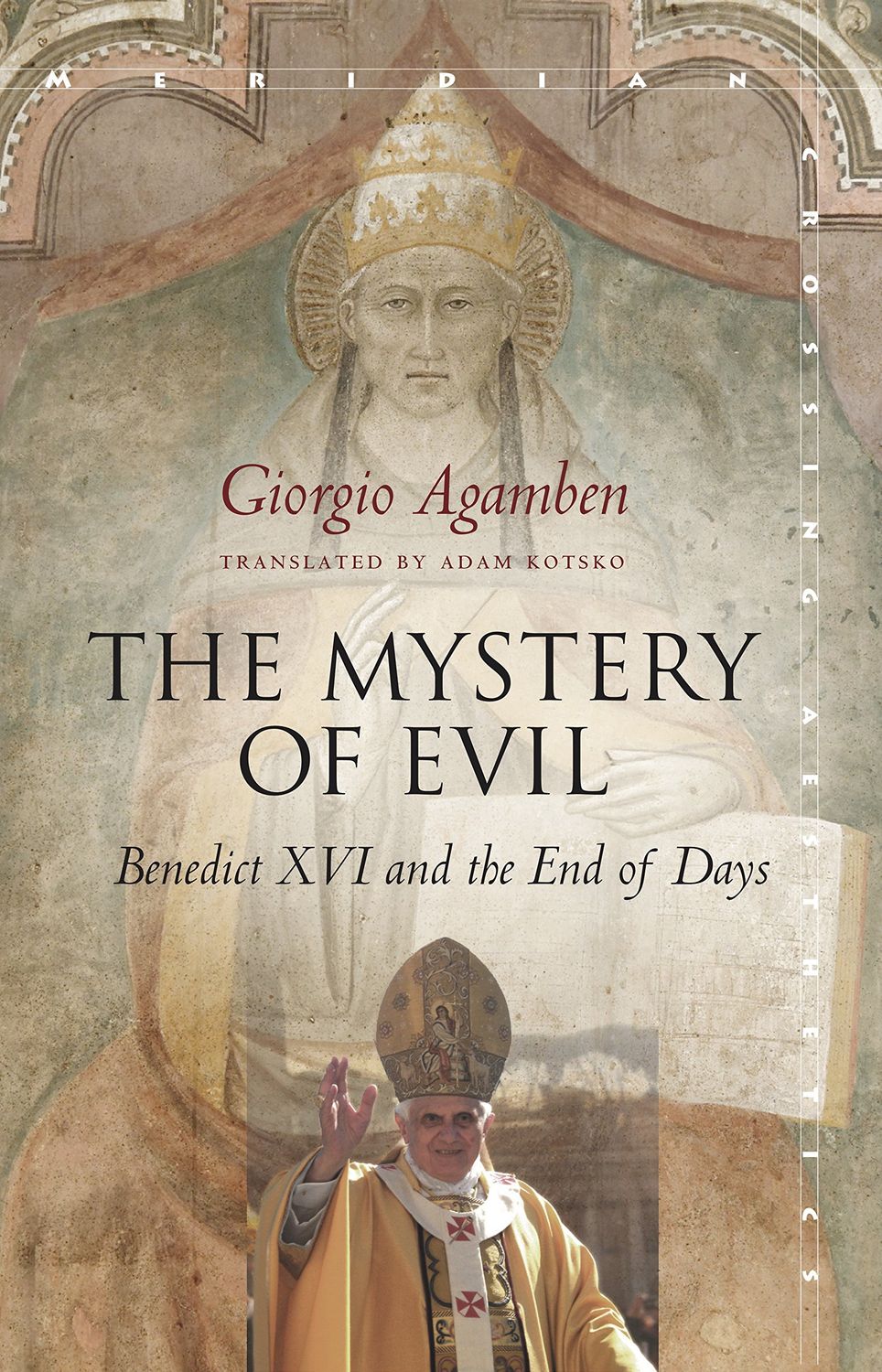The Mystery of Evil: Benedict XVI & the End of Days
In 2013, Benedict XVI became only the second pope in the history of the Catholic Church to resign from office. In this brief but illuminating study, Giorgio Agamben argues that Benedict's gesture, far from being solely a matter of internal ecclesiastical politics, is exemplary in an age when the question of legitimacy has been virtually left aside in favor of a narrow focus on legality. This reflection on the recent history of the Church opens out into an analysis of one of the earliest documents of Christianity: the Second Epistle to the Thessalonians, which stages a dramatic confrontation between the "man of lawlessness" and the enigmatic katechon, the power that holds back the end of days. In Agamben's hands, this infamously obscure passage reveals the theological dynamics of history that continue to inform Western culture to this day.
The book features Agamben's essay on Benedict XVI's resignation as a gesture revealing eschatological tensions, followed by an appendix of patristic excerpts—primarily from Tyconius's Liber regularum (Book of Rules) and related commentaries on Revelation and 2 Thessalonians, including selections from his Exposition of the Apocalypse.
"[With] The Mystery of Evil: Benedict XVI and the End of DaysGiorgo Agamben continually marks himself as the leading [a]theistic political theologians writing today as well as one of—if not the most—fascinating Continental dialogue partners with Christianity within the Continental tradition....The text itself is short (39 pages), yet, its controversially brilliant theme cannot be ignored by serious thinkers (Christian and non-Christian alike."—Philip Gonzales, Louvain Studies
Giorgio Agamben is Professor of Philosophy at the University of Venice. He is the author of Profanations (2007), Remnants of Auschwitz: The Witness and the Archive (2002), both published by Zone Books, and other books.


